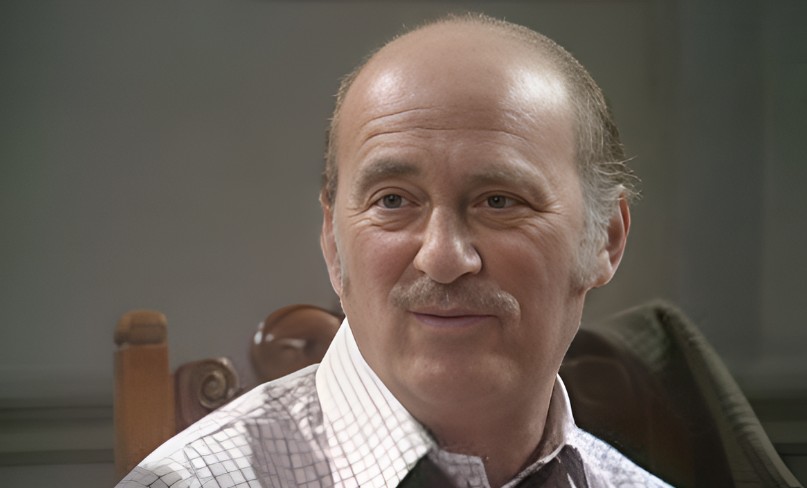Sydney Tafler: The Life and Legacy of a Distinguished British Actor

Sydney Tafler was one of those rare actors whose presence on stage and screen could captivate audiences without the need for flamboyance. Known for his versatility, charisma, and his ability to embody a wide range of roles, Tafler carved a place for himself in British entertainment history during the mid-20th century. From his early days in London’s theatre scene to memorable appearances in classic British films and television programmes, his career spanned decades and left a remarkable mark on the performing arts.
Early Life and Background
Sydney Tafler was born on 31 July 1916 in Hackney, East London. Raised in a Jewish family, his upbringing reflected both tradition and ambition. His parents, Eva and Mark Tafler, provided a supportive environment that allowed him to pursue his interests in drama and performance from an early age. Unlike many of his peers who stumbled into acting by chance, Tafler showed focus from the beginning, gravitating towards the stage as his chosen path.
His educational journey led him to the prestigious Royal Academy of Dramatic Art (RADA), one of the foremost institutions for acting training in the United Kingdom. He graduated in 1936, equipped with both technique and determination. The skills he refined at RADA not only shaped his stagecraft but also prepared him for the varied roles he would later take on in film and television.
Stage Beginnings
Soon after completing his studies, Sydney Tafler began to establish himself in London’s West End. His debut performance came in The Man in Dress Clothes in 1936, a production that marked the beginning of a professional journey that would span over four decades. The stage became a testing ground for Tafler, allowing him to master classical roles as well as contemporary pieces.
During the 1940s, he performed with the Old Vic theatre company, one of the most respected names in British drama. Here he tackled Shakespearean roles, displaying his ability to handle the complexities of classical language and characterisation. His work with the Old Vic cemented his reputation as a serious actor, even before his transition into the world of film.
The Breakthrough into Film
Tafler’s first major break into cinema came with It Always Rains on Sunday (1947). Playing a record shop owner, he captured the grit and realism that defined post-war British cinema. His portrayal resonated with audiences who recognised the authenticity of his character. The film’s success propelled Tafler into the spotlight, and he quickly became a familiar figure in British films of the late 1940s and early 1950s.
The late 1940s saw him take on roles in iconic Ealing Studios productions such as Passport to Pimlico (1949), where he played Fred Cowan. This comedy film, set in post-war London, became a classic, and Tafler’s role added to the realism and humour of the story. His performance showed that he was not limited to dramatic parts; he could also excel in lighter, comedic roles.
Defining a Screen Persona
One of the aspects that made Sydney Tafler memorable was his recurring portrayal of suave or streetwise characters, often described as “spivs.” In post-war Britain, the figure of the spiv — the slick, fast-talking man who thrived on the black market — was both feared and admired. Tafler embodied these roles with natural charm, making them believable and often stealing scenes with his smooth delivery.
Films such as The Lavender Hill Mob (1951) and Assassin for Hire (1951) displayed his ability to dominate the screen without overshadowing the overall narrative. His characters were often shrewd, witty, and pragmatic, reflecting the social dynamics of the time. While some actors risked being typecast, Tafler used the opportunity to showcase subtle variations, ensuring each role had its individuality.
Career Highlights in Cinema
Throughout the 1950s and 1960s, Sydney Tafler maintained a steady presence in British cinema. His performances in Reach for the Sky (1956), where he played a prosthetics expert, and later appearances in thrillers, comedies, and dramas, illustrated his adaptability. He did not restrict himself to a single genre; rather, he moved seamlessly between crime dramas, war films, and comedies.
One of his most high-profile film appearances came towards the end of his career in The Spy Who Loved Me (1977). Cast as the captain of the supertanker Liparus, he appeared in one of the most memorable James Bond adventures. Directed by his brother-in-law Lewis Gilbert, this role was fittingly his final cinematic performance, marking the conclusion of a distinguished film career.
Contributions to Television
Sydney Tafler also played a vital role in the development of British television entertainment during its formative years. In the 1960s, he became a regular presence in the popular BBC sitcom Citizen James. Initially portraying the bookmaker Albert Welshman and later the character Charlie Davenport, Tafler brought humour and wit to a generation that was beginning to embrace television as a staple of British life.
Beyond sitcoms, Tafler appeared in a variety of television dramas, including Dixon of Dock Green, The Sweeney, Hadleigh, and Wodehouse Playhouse. These appearances revealed his skill in adapting to the rapidly changing world of television drama. He was equally comfortable in crime series as he was in comedic productions, proving his range once again.
Personal Life and Relationships
Away from the stage and screen, Sydney Tafler led a fulfilling personal life. In 1944, he married actress Joy Shelton. Their partnership endured until his passing, and together they raised three children — Jeremy, Jonathan, and Jennifer. His daughter Jennifer even followed in her parents’ footsteps as a child actress, extending the family’s connection to the performing arts.
Tafler also maintained close professional ties within his extended family. His sister Hylda was married to director Lewis Gilbert, who would go on to helm several famous films including multiple James Bond titles. This connection later led to Tafler’s role in The Spy Who Loved Me, adding a family dimension to his career’s final chapter.
Later Years and Final Performances
In the mid-1970s, Tafler returned to the stage with a memorable performance in Harold Pinter’s The Birthday Party. Playing Nat Goldberg, he brought intensity and nuance to a revival of Pinter’s work that had earlier been adapted into a film in which Tafler had also appeared. His ability to transition between stage and screen even in the later years of his career spoke volumes about his dedication and adaptability.
Sadly, Tafler’s life was cut short when he died of cancer on 8 November 1979 in Richmond upon Thames, Surrey. He was only sixty-three, and his passing was felt deeply within the acting community. His final performances stand as a testament to his enduring commitment to his craft.
Legacy and Influence
Sydney Tafler’s contribution to British entertainment cannot be overstated. He was part of a generation of actors who helped shape the identity of post-war British cinema and television. By portraying characters that audiences recognised and related to, he became part of the fabric of everyday storytelling.
His characters were not grand heroes or exaggerated villains but often ordinary people with flaws, wit, and survival instincts. This realism reflected Britain’s cultural mood after the Second World War, and it is one of the reasons his performances remain significant today.
In addition, Tafler’s work paved the way for later actors who sought to balance careers across stage, film, and television. His ability to embody both comedic and dramatic roles, while maintaining a sense of authenticity, serves as a model for aspiring performers.
Conclusion
Sydney Tafler’s life was defined by dedication to his craft, versatility in performance, and an unwavering connection to audiences. From his formative years at RADA to his iconic appearances in films and television, he consistently demonstrated the depth and skill that distinguished him as a true professional. His career represents not just the journey of an individual actor but also a reflection of Britain’s cultural evolution in the twentieth century.
Though he passed away more than four decades ago, Sydney Tafler remains a respected and memorable figure in British entertainment. His performances continue to be revisited by film enthusiasts and historians alike, ensuring that his legacy endures for generations to come.



